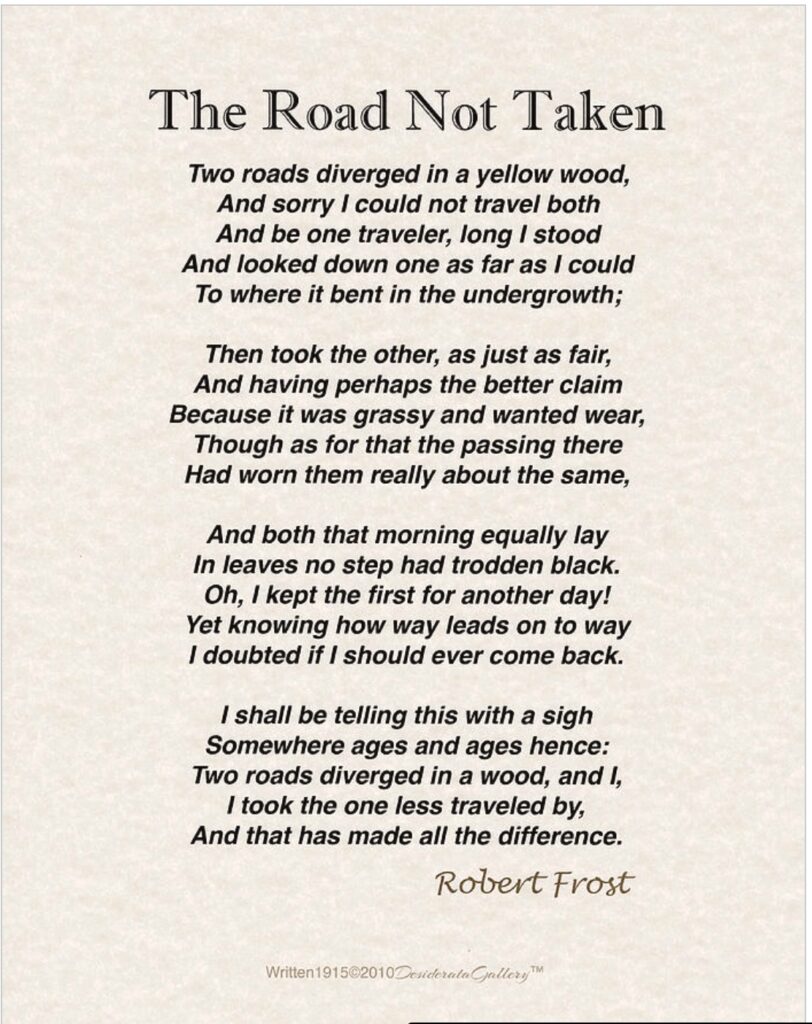As I come to the end of one year and the beginning of the next, it occurred to me to look back on my life and the choices I’ve made along the way.
My thoughts wandered to a quote that I’ve heard before: “The Road Less Traveled…” So, I decided to look it up to see its origin. It turns out that it is a paraphrase from a line in a poem titled, “The Road Not Taken” by Robert Frost.

I want to focus on the last paragraph:
I shall be telling this with a sigh. Somewhere ages and ages hence: Two roads diverged in a wood, and I, I took the one less traveled by, And that’s made all the difference.
In 2025, I will celebrate 13 years of blogging. I can’t believe it’s been that long since God called me to create my blog to inspire people through the insights He has given me like this one.
Question: How many paths have you experienced that, by taking one instead of the other, changed the trajectory of your life? I’ve had many.
I’ve written about several during these 13 years:
A Decision: The Beginning of Change https://drjacklynchisholm.com/archives/date/2012/04
Personal Transformation Has a Cost: Are You Willing to Pay? https://drjacklynchisholm.com/archives/18https://drjacklynchisholm.com/archives/18
Have You Hit a “Redirecting” Wall? https://drjacklynchisholm.com/archives/date/2015/02
Each choice to take a different path led me to the life I’m living now; a life I’m truly grateful to God for because of what He has allowed me to experience and achieve: (1) choosing to leave an abusive relationship in my teens with the possibility of death looming over me; (2) choosing to attend a selective university as a first-generation, Black student and earning a doctorate over a 19-year period when, at several points, I wanted to quit; (3) after a failed marriage, choosing to try love again. My husband Robert and I will celebrate our 40th anniversary in 2025!; (4) choosing to live when life had become too difficult to bear and suicide was a considered option; (5) choosing to follow God’s plan when it didn’t make sense and finding my purpose in the process; and (6) choosing to honor God’s leading to write a blog and a book when every instinct I had based on my troubled past made me question not only my ability to write, but also the impact my words may have on others.
These are just a few examples of the paths less traveled that I’ve chosen…so far.
So, like me, when you come to “two roads that diverge,” remember that, as Jennifer Aniston said, “There are no regrets in life, just lessons.”
I wish you a prosperous and Happy New Year!
Click “Watch on YouTube” to view the video.
